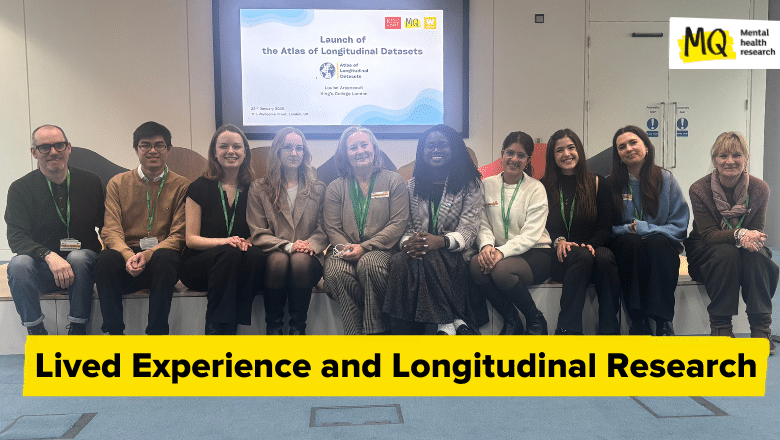
Researchers at King’s College London, supported by MQ, the Wellcome Trust and experts by lived experience have launched a ground-breaking platform that can facilitate research into health and wellbeing. In this blog, lived experience experts, Jan Speechley and Michael McTernan, explain more about this revolutionary approach.
Our journey
Having been part of the team developing the Atlas of Longitudinal Datasets, being there at the launch was a real privilege. Travelling down from Yorkshire and Scotland, we both had an early start that day. When we walked through the doors of the Wellcome Trust, we got a reception worthy of the funder’s name. We already knew how much the Atlas team valued our input and meeting the rest of the team was amazing. Their commitment to lived experience in their work was evident as we were front and centre at the launch event being part of the panel discussion.
The panel discussion
The panel included the two of us, Mike Daly from the Department for Work and Pensions, Nic Timpson from the University of Bristol, Naomi Herz from Wellcome, Malaika Okundi and Daniel Yu from the King’s College London team – with Louise Arseneault chairing the panel.
We talked about our involvement in the Atlas, the value of lived experience in longitudinal studies, and answered questions from the audience. It was empowering to share our journey, thoughts and opinions with people from across the world. Here are some of our reflections.
Longitudinal research takes years and can need long term commitment
Longitudinal research has unique challenges when recruiting participants. This kind of research requires the commitment of participants over a long time, and they may not see the outcome of the research. Lived experience experts play a key role in providing insight into the motivations of potential participants, helping to promote the value of taking part in longitudinal studies, informing how to recruit and maintain participation of study members, and translating the aims, findings and other outputs of studies into stories that make sense to a range of audiences.
Equally, longitudinal studies can tell the stories of people with lived experience, reflecting their journey over time as their lives, environment and symptoms change as they get older.
As people with lived experience, we know it is vital that our work leads to changes that improve the lives of people around the world.




